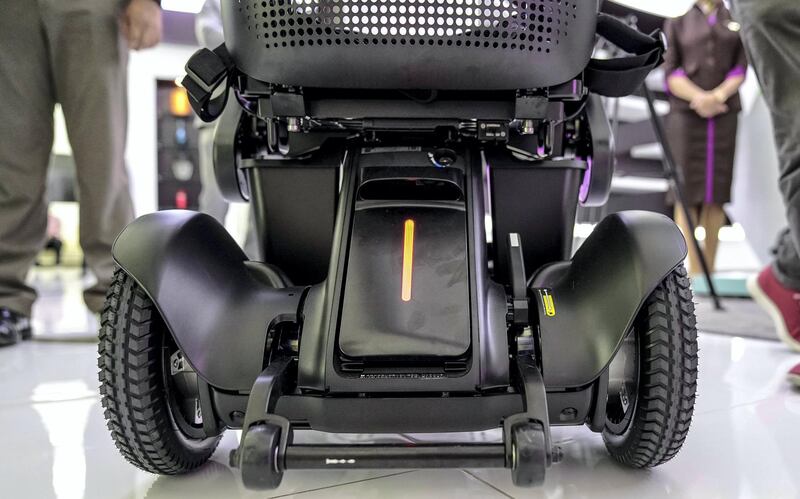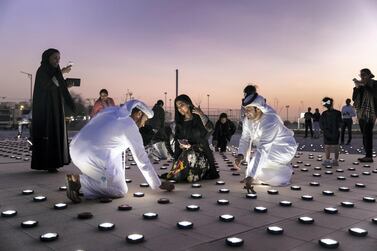Around the UAE, efforts to integrate people with disabilities into public life are becoming increasingly visible. Parking lots include designated spots, public washrooms have special cubicles and ramps are increasingly commonplace outside public and residential buildings.
There is a shift in mindset among employers too. Zia Mirza, who has a hearing disability, and Mohammad Zeeshan, who is paralysed below the waist, are among those who have full-time jobs, thanks to inclusive hiring policies at their bank that have enabled them to showcase their talents.
For its part, the UAE government has sharpened its focus on improving the lives of those with disabilities with the help of technology.
Given that we live in a world where technology is making life increasingly easier for the majority of able-bodied people, it is heartening to know how it has also enabled and opened doors for those who have physical obstacles to overcome. With this in mind, the government has embarked on a number of ambitious projects, in concert with private enterprise, to make cutting-edge technology available to those who stand to benefit from it most.
One such initiative is being spearheaded by Abu Dhabi International Airport, which is trialling self-driving wheelchairs until the end of the year. These autonomous devices feature sensors capable of independently detecting and avoiding obstacles such as people as they travel. They can also be programmed with up-to-date boarding times and gate information to ensure ease of travel.
And last week the federal government announced the 10 winners of the first Maan Social Incubator programme. Established by the Department of Community Development in Abu Dhabi in May, this initiative encourages the development of start-up projects that provide solutions to the challenges people with disabilities face daily. The winners, picked out of a list of 130 applicants from around the world, will be given up to Dh200,000 to turn their projects into reality.
Some of these ideas include providing a mobile application that enables communication from text to sign language and vice versa, an app to teach sign language to children and parents with hearing impairments, and assistive technology that empowers people with disabilities to use tablets, computers and smartphones with adapted hardware and accessories.
These initiatives – as well as those taken by private companies such as Emirates NBD and Hilton RAK Resort and Spa in hiring people with disabilities as part of their staff – underline a focus on empowering individuals. This is a step in the right direction, because, as Etihad chief operating officer Mohammad Al Bulooki says, the idea is to foster independence. “From the organisation of the Special Olympics last year and our day-to-day operations, we saw that people wanted to have control for themselves,” he said.
Indeed the Special Olympics, held in the UAE capital in May, was an eye-opener in more ways than one. It proved that when provided with the resources and the right platform, those with disabilities could be just as aspirational, competitive and capable of bringing out the best from within as the rest of us. What it also revealed was the amount of public support the event and its participants garnered.
The key takeaway here is that the message of empowerment did not simply end with the last firework at the closing ceremony. Instead, it set in motion a programme of initiatives to go towards building a humane society, where everyone gets the respect they deserve and the opportunity to reach their full potential, in whichever field they choose.






